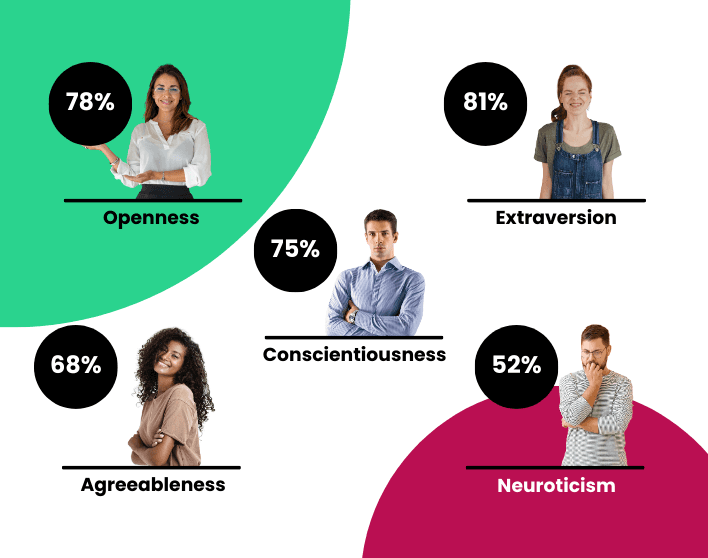The Bryq Team
HR Experts
Writing job descriptions is a task that many hiring managers don’t consider when they are employing a new person. However, they are important for expectation setting, especially in a remote work environment. Learn more about writing the perfect job description for your next remote hire.
Do you have that person in your workplace who is engaging and everyone loves to be around? If you’ve ever wondered why that is, we have the answer for you. They have fantastic soft skills.
What Are Soft Skills?
Soft skills are the qualities people have that aren’t concrete knowledge or ability. Instead, they are the unseen, emotional intelligence skills that help us get along with others in our daily lives. Soft skills can include people skills, communication skills, personality traits, and social skills. Having a combination of these can help you go far in life as you will get along well with other people.
While soft skills can be taught, many people innately possess them. They aren’t as easily teachable as hard skills such as coding, digital marketing, or other technical skills. That’s because they are more subtle and undefinable. Hard skills can be learnt and improved upon. For example, as you get a deeper understanding of coding, you can get better at it. However, it’s not as much of a straightforward process when learning soft skills.
Don’t get us wrong, it’s definitely worth investing your time in learning soft skills. These are great leadership skills and that’s why they help people to become great managers, leaders, and co-workers. They are also highly transferable skills as they don’t relate to a particular industry. Let your staff spend time working on them and you just might see their potential soar.
5 Soft Skills to Look for When Hiring
When you’re hiring a new staff member, it’s important to assess their soft skills. This can be an indication that they will get along with their co-workers and be focused on self-improvement in their new role.
Growth Minded
Having a growth mindset refers to the belief that failure or frustration is an opportunity to improve and grow. No matter what type of role you’re hiring for, the person will find themselves experiencing setbacks along the way. They might get frustrated, have their ideas shot down, or encounter something that they don’t know how to do. That’s when hiring someone with a growth mindset will be crucial.
Those who are growth-minded often have more resilience than others, due to their determination to improve. So, a sub-par performance review, failed presentation, or snub from a co-worker won’t phase them for long. They will use it as a learning experience and an opportunity to grow and do better next time.
not the most intelligent that survives.
It is the one that is the most adaptable to change.”
― Charles Darwin
Emotional Intelligence
Emotional intelligence is all about being in tune with the emotions of others as well as your own. Many people live their lives by burying their feelings down and not realizing how they truly feel. Those with emotional intelligence do the opposite, gaining self-awareness and are highly perceptive of others as well. They have great listening skills, ensuring that others feel heard in the workplace.
There are 5 hallmarks of emotional intelligence: empathy, social skill, motivation, self-awareness, and self-regulation. Someone who has these 5 traits can make a fantastic employee or manager. Imagine if your manager was perceptive to how you felt and tempered their responses accordingly. Your work life would be much easier, and you would get along with them better. That’s what people with emotional intelligence bring to the table.
There was a study done on new employees who didn’t live up to standards in their first 1.5 years in a new job and why this happened. The findings discovered that almost a quarter of these failed due to a lack of emotional intelligence.
Ability to Receive Feedback
The ability to receive feedback is a crucial trait. Without you as the manager being able to give a new employee feedback, they aren’t likely to start meeting your expectations. To hear feedback and improve from it, the person must be open-minded and have a positive attitude towards it in the first place.
This skill does partially fall under the categories of both emotional intelligence and growth mindset. However, it is a skill in its own right as well, and a critical one for fantastic job performance.
Many people get defensive when they receive feedback. Reacting positively and seeing it as an opportunity for growth can turn a situation perceived as negative into a positive. Hiring for this quality from the outset will make your job as a manager so much easier in the future.
Strong Work Ethic
Every hiring manager’s dream hire is someone who works hard and completes everything on time and to the best of their abilities. However, this doesn’t always happen. Hiring someone with a strong work ethic can be difficult, as you won’t always know until you hire them. However, traits that you can look out for include being on time for their interview, great preparation for the interview, and a thorough personalized cover letter. These details show that they are approaching their job search with incredible work ethic, and hopefully, that will follow through to their work.
The benefits of hiring someone with a strong work ethic are that they will be able to work independently, they will be organized, and they will be reliable workers. Plus, they are great at time management, so will always make their deadlines.
Collaborative
One last critical soft skill that you should look for in new staff is the ability to work as a team. If someone doesn’t get along with the team you already have, this will make your job as a manager unnecessarily difficult.
Those who work well with others are able to negotiate, show empathy, network, and are great at dealing with tough situations. These are the kinds of people you want on your team! They have the ability to get involved in the group without getting bogged down in office politics.
Hire is based not only on experience and qualifications but also the soft skills of job candidates as well. This will give you consistent benefits in the long run as these employees are likely to outperform even those with amazing hard skills.








